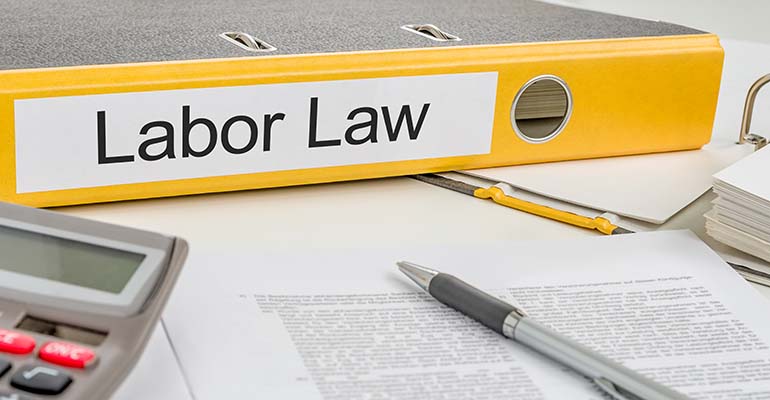
Florida Labor Laws and Part-Time Employment
Florida part-time laws are in place to protect the employee rights of workers across many industries. Even if you are not a full-time employee – you still have rights.
Understanding what is considered part-time in Florida and related Florida part-time laws is key to ensuring that you are paid a fair wage, and your employer does not violate your legal rights in the workplace.
What Is Considered Part-Time In Florida?
There is no strict definition under Florida part-time laws and Florida statutes for a specific number of hours a person works that would make them a part-time employee. It can average around 20 hours but can be less (or more). As a general rule, anyone working less than 40 hours per week may be considered part-time.
Florida Part-Time Laws
Florida part-time laws align with labor laws, with the intention to ensure you are getting paid what you are legally owed and are protected against violations of federal and state employment laws. Even though you are not considered a full-time employee, you have rights just like they do.
Employee Rights
Part-time employees are protected against various unlawful acts under civil rights laws and labor laws, including Title VII of the Civil Rights Act and the Fair Labor Standards Act (FLSA).
Under federal and state civil rights protections, part-time employees are protected against various kinds of discrimination, including sex discrimination, race discrimination, age discrimination, religious discrimination, disability discrimination, and sexual harassment. Part-time workers deserve to work in a safe environment and get paid fairly, just like full-time workers.
Hours and Wages
Federal and state standards for fair pay for hours worked to apply to part-time workers. Did you know that the minimum wage in Florida as of 2022 is $10.00/hr.? The required cash wage for tipped employees increased to $6.98/hr, and the minimum wage will continue to increase in the coming years.
- September 2022: $11.00/hr.
- 2023: $12/hr.
- 2024: $13/hr.
- 2025: $14/hr.
- 2026: $15/hr.
Keeping track of your paycheck is an important practice to ensure you are getting paid what you are legally owed. Companies are not legally bound to give part-time workers a certain number of hours per week, but they are legally bound to pay the Florida minimum wage for whatever hours you actually work.
In reality, wage and hour disputes are among the most common issues that arise in employment law, including making you work through your breaks, which is a common practice that some companies may incorporate into their business practices to increase their bottom line. If this is happening to you, or if you are not receiving minimum wage, contact an employment law attorney for a consultation.
Some employers will also offer part-time employees benefits, such as health care, if they work at least 20 hours per week. These are typically listed in employee manuals and other human resources materials.
Overtime
Although it may not often happen for part-time employees, overtime is a valuable opportunity for workers to earn additional income in their paycheck. On the weeks that a part-time employee does end up working more than 40 hours in a workweek, they are legally owed overtime pay under the parameters of the FLSA.
The FLSA requires employers to pay time and a half for all hours worked above 40 in one workweek. For example, if a part-time employee is paid $10.00 per hour, if they work an additional 15 hours because there were call-outs or an influx in business and the company needed more help (or for other reasons), that employee would be owed $10.00 X 1.5 X 15 hours. This equals $15 X 15 hours = $225 of overtime pay.
If the employer pays “straight pay” for that extra 15 hours, they are violating the parameters of the FLSA, which, unfortunately, is not an uncommon practice. If this occurs over a long period of time, it can add up to a substantial amount of money that the individual is missing out on and could make a big difference in their finances. The bottom line is that if part-time employees work overtime – employers are legally required to pay you fairly with overtime wages.
Unemployment
Part-time employees may get unemployment benefits if they lose their job. There need to be certain circumstances to be present for you to qualify to receive them, which include:
- Losing your job was because of no fault of your own, such as a layoff or reduction in force
- You are actively seeking employment
- You are unable to find another job
- You earned at least $3,400 at your place of work within the last 18 months
All of these circumstances must be met for you to be eligible for unemployment benefits.
When to Contact An Employment Law Attorney
If you are a part-time worker and believe you have not received fair wages under labor law and Florida part-time laws or have had your civil rights violated, contact an employee rights attorney to determine your best legal options.
Wenzel Fenton Cabassa P.A. is the employee’s law firm — fighting for your rights against powerful employers. You deserve fair pay and a safe working environment, and you may be entitled to back pay, overtime pay, and other damages.
We offer free consultations and work on a contingency basis – there is no fee unless we win.
Please Note: At the time this article was written, the information contained within it was current based on the prevailing law at the time. Laws and precedents are subject to change, so this information may not be up to date. Always speak with a law firm regarding any legal situation to get the most current information available.








